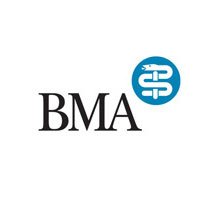BMA tells Lansley to halt revolution
- 15 March 2011

The British Medical Association has called for the government to stop its plans for a massive reorganisation of the NHS and to withdraw the Health and Social Care Bill.
However, a special representative meeting in London drew back from opposing the Bill "in its entirety". And a vote of no confidence in health secretary Andrew Lansley was narrowly defeated.
At the first SRM for almost 20 years, doctors said the proposals outlined in the ‘Liberating the NHS’ white paper last summer were too extreme, too rushed and would impact negatively on patient care.
More than 350 doctors backed calls for the Bill to be scrapped and said the government’s “risky plan” should not be carried out while the NHS in England is trying to save £20 billion over four years.
However, a call for the association to oppose the Bill in its entirety was narrowly lost, with 54% of representatives voting against this motion.
BMA Council member Dr Jacky Davis urged doctors to tell the government it rejected all parts of the Bill and argued that no significant changes would be achieved by negotiation, whatever doctors’ concerns.
She added: “This is not Woolworth’s pick and mix – we cannot choose the things we like and reject the rest. We cooperated with the government on its consultation and they took no notice of us at all.”
However, Dr Hamish Meldrum, BMA Council chairman, said rejecting the Bill in its entirety would send out the wrong message. He also argued it would be a high risk strategy for the doctors’ union, since it was highly likely that the Bill would go ahead.
He further predicted that there was room for manoeuvre. He told the meeting: “There is still a long way to go and a lot to play for so please do not tie our negotiating hands.”
Earlier Dr Meldrum, who has faced criticism from the medical professional for his policy of ‘critical engagement’, told the meeting that some people had mistakenly labelled the association’s approach as the ‘BMA supports [the] proposals’.
He said: “I do not support this Bill, the profession does not support this Bill, the BMA does not support this Bill.” However, he added: “We need to be realistic about where we are and what we wish for."
Doctors at the meeting backed a motion claiming that there was no electoral mandate for the government’s changes but rejected calls for a public referendum to assess public support for the Bill.
They also attacked the government’s plans to form clusters of primary care trusts ahead of the introduction of GP commissioning. They said PCTs – which must merge into clusters by June – were losing key staff and at risk of collapse.
Doctors also criticised what they described as a lack of protection for patient data in the Bill. Dr Tony Calland, a member of the BMA Council and the National Information Governance Board for Health and Social Care, told doctors that the Bill gave the health secretary sovereign power to use patient data as he saw fit.
He added: “Nowhere in the bill is there any mention of anonymisation, pseudoanonymisation, aggregation or consent to use data either in the Uk or even outside the UK.”
Dr Grant Ingrams, former chair of the BMA GP committee’s IT committee, said he was “disgusted and incandescent” about the lack of protection for patient data in the Bill.




